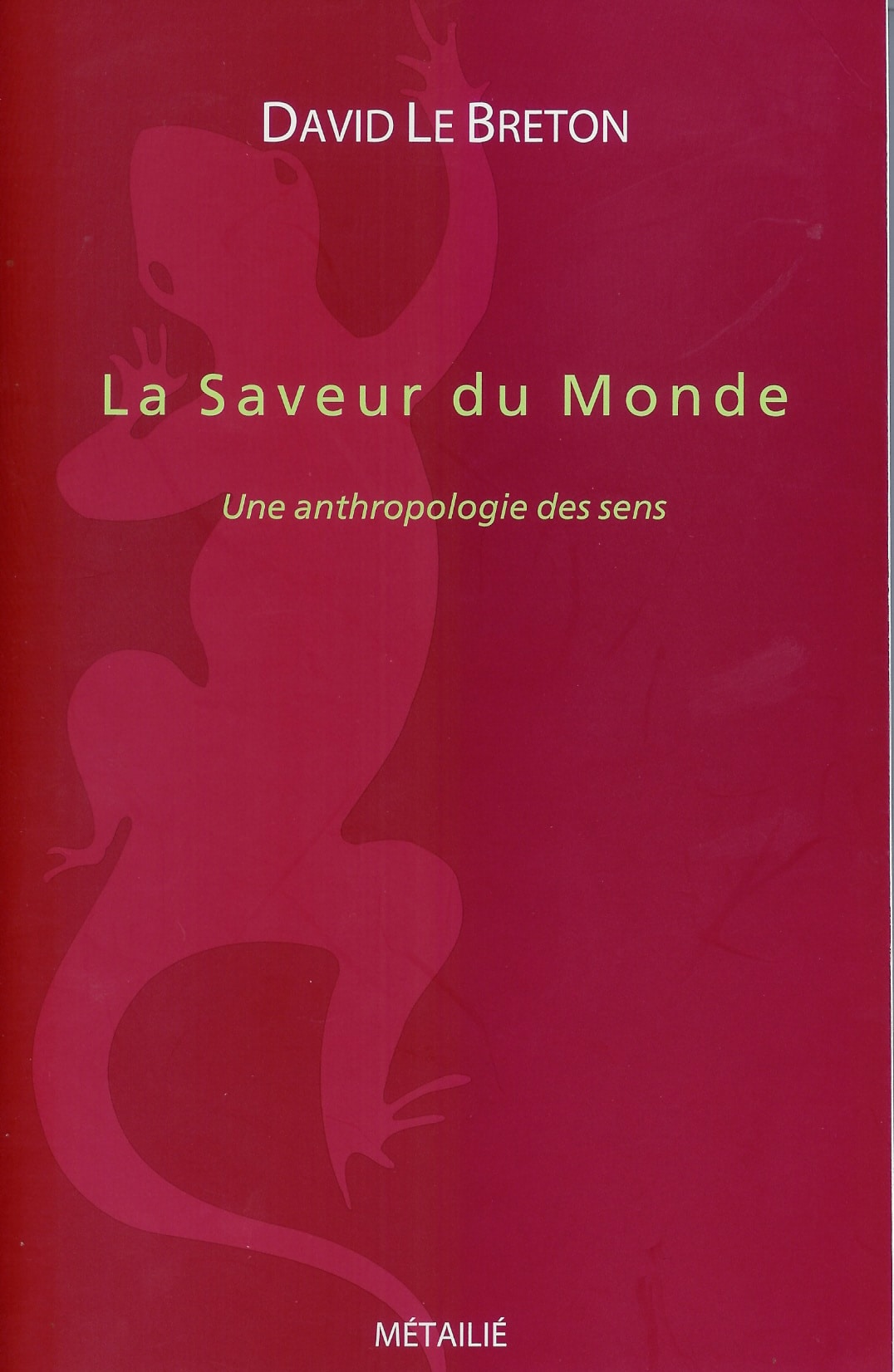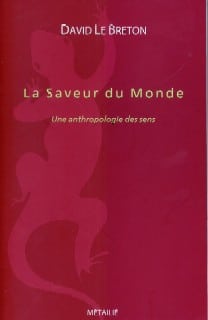Devour with your eyes. Listen attentively. Nurture hope. All senses are employed in the service of human passion. Yet, this is what frightens the contemporary world. Modernity, it is believed, has become incompatible with emotions accused of keeping the human being at the stage of animality. We are wary of anything that might stir our senses, touch us at the risk of losing control and abandoning ourselves. Indeed, the circumstances are hardly favorable to us. In Mediterranean countries, acknowledging one’s sensitivity is an admission of weakness. In China or Japan, people sometimes wear masks to breathe in the polluted big urban centers. Elsewhere, listening to music is forbidden because it might prevent one from hearing the voice of a prophet. Across the Channel, bodily contact as a form of greeting is considered vulgar.
To all of them and others, the salvific immersion in the latest book by David Le Breton is recommended: “The Flavor of the World.” For more than twenty years and as many essays published on the subject, the body has mobilized, so to speak, all his spirit. This anthropology of the senses also aims to be that of the experienced: “Between the flesh of man and that of the world,” the introduction states, “there is no rupture but continuity.” Following the author’s thoughts is akin to settling down comfortably for a fine dinner. The chapters unfold like a gastronomic menu where the dishes of sensory knowledge succeed each other and invite us to decode the enigmas of the vast world. Each society, explains David Le Breton, has constructed a hegemonic vision of a sense: The West privileges sight and hearing. It opposes their nobility to that of “touch,” “the most limited condition of perceptions” as stated by Kant. But the history of civilizations, from which the author’s acknowledged erudition draws multiple references, provides him the capacity for rebuttal. “Admittedly,” he acknowledges, “sensitive knowledge lacks universality and rigor.” But it “humbly serves the unfolding of daily life”: it allows a “gustation” of the world. In fact, the senses complete and mutually serve each other “as guarantees.” And to quote the German poet Goethe: “The hands want to see, the eyes want to caress.”
If culture and education contain the most primitive impulses, the conventions in use, according to the anthropologist, impose restrictions on some of our senses or suggest the need for others to develop. Both undergo, from birth, a social formatting that relies on the extraordinary plasticity of the brain. On this point at least, anthropologists, neuroscientists, and psychoanalysts agree. The senses easily overlap in children. The deficiency of one is compensated by the use of another: as long as someone speaks, it “lightens up for the child plunged in the dark,” reports Freud in his Three Essays on the Theory of Sexuality. Childhood is heavily discussed in this book. The tastes of the very young are stamped with an indelible mark. That of the maternal libido. The adult’s desire will ceaselessly seek them out. The wife may meticulously follow the mother-in-law’s recipe, but the dish will always lack a little something. According to American studies cited by the author, premature infants increase their survival chances if they can listen to maternal heartbeats. The baby caressed during parental care, even massaged as recommended by physiotherapists, will better convey and in turn share what Bachelard called “the prodigious muscular forest of the palm of the hand.” Unfortunately, the author confirms, touch in the West is “under the aegis of erasure.”
This relationship between sight and touch gives rise to evoking the oddity of the everyday: who has not found themselves in a crowded metro during rush hours cannot recall the known fact: when bodies touch, eyes avoid each other. It is “the impossibility of the eye’s touch that takes over from a contact ban erased by circumstances,” concludes the author. The scenario is reversed on the streets of Tehran: under the religious injunction of bodily distance, veiled Iranian women know how to exploit the incredible lexical richness of the gaze.
While he does not dedicate a central chapter to it, perhaps because anthropology does not designate it as a “sensory faculty,” David Le Breton knows how to recognize — it could not be otherwise given his deliberate use of it — all the contribution of language. Even that of signs among those deprived of speech. The word, psychoanalysts know better than anyone, is charged with emotional power long before conveying meaning. A sense that, in a way, covers all the others, helps them flourish or, conversely, deteriorate. After all, the word is said, heard, read and… “lays itself” on paper.
David Le Breton, “The Flavor of the World,” An Anthropology of the Senses, Editions Métailé, 2006, 456 pages, 20 Euros.
Jlvannier@free.fr
06 16 52 55 20




